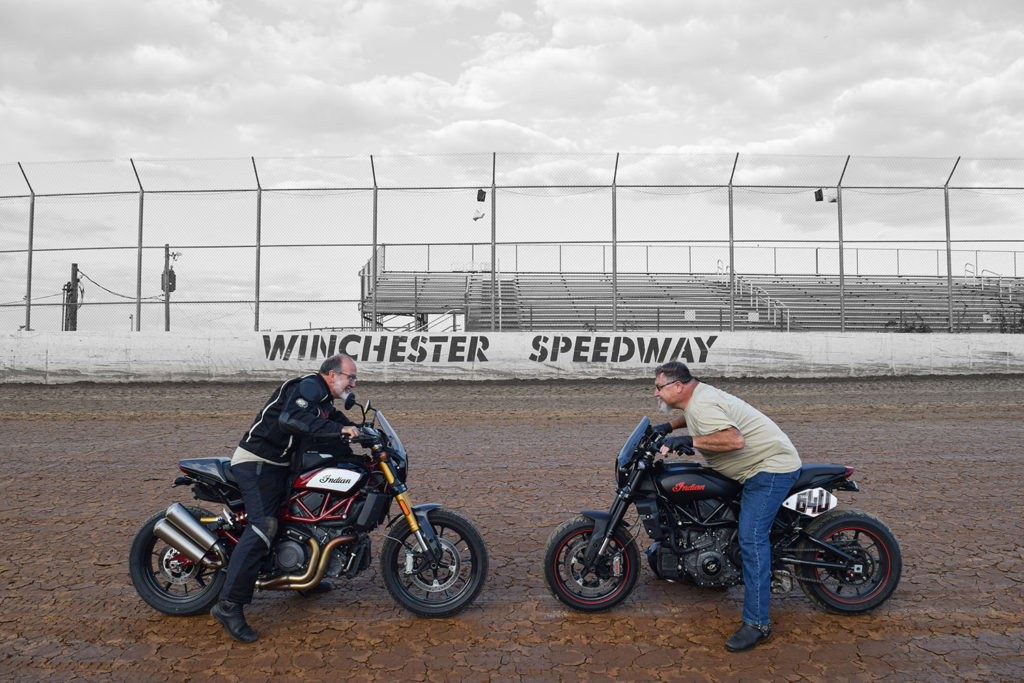
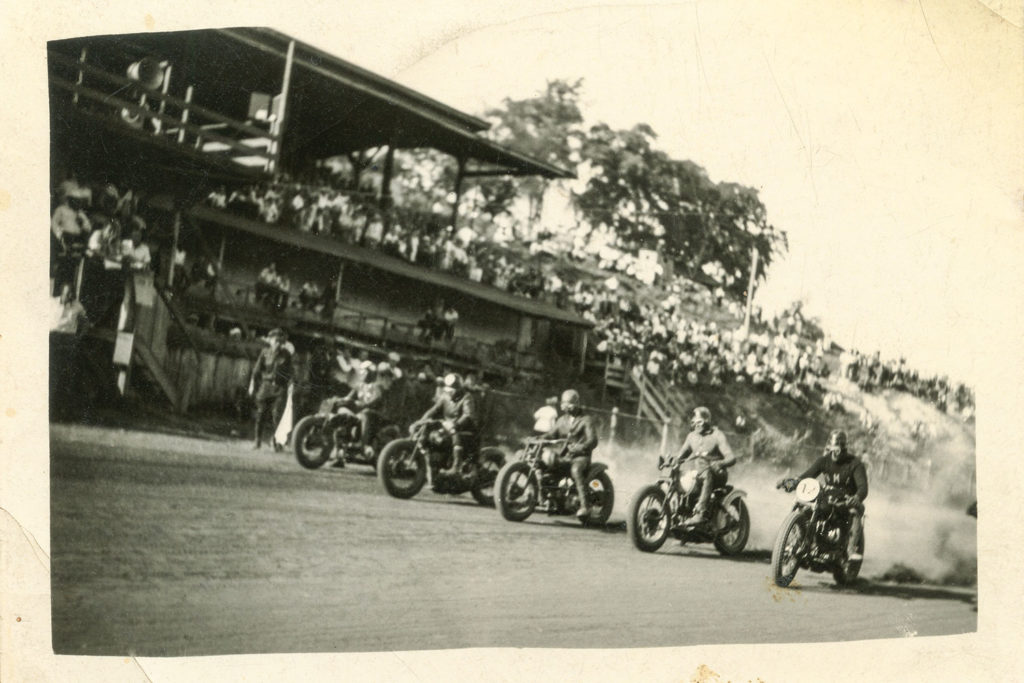
At a time when American riders were fighting the Harley and Indian wars, Gene Townsend and Floyd “Washie” Washabaugh were unflinchingly Indian men. It was rumored their blood flowed a bit more maroon than the rest of us, having the distinct deep shade of the brand’s signature Indian Red color.
Over the years, the two men defended the Indian brand on dirt tracks across Pennsylvania, Maryland, and Virginia. Gene, my grandfather, born in 1908, spent most of his racing years on an Indian 101 Scout sporting the #9 plate. He was a top regional amateur racer from the mid-1920s on into the war years, only to retire when a brush with a #6 bike sent them both through a fence.
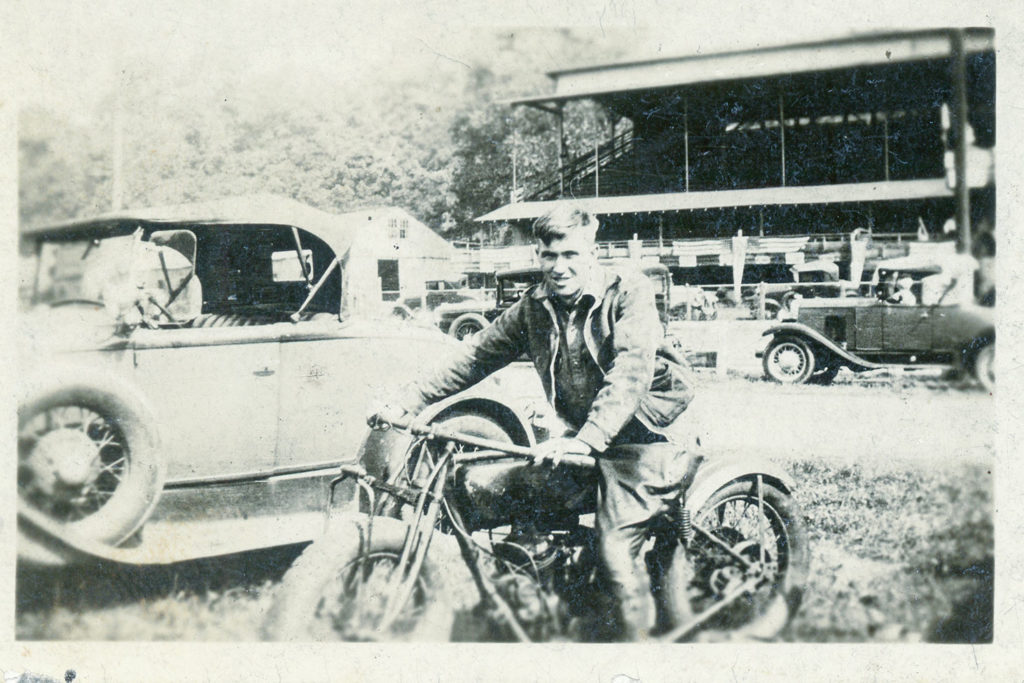
The radio announcer covering the event mistook the upside down #6 machine as the #9 and mistakenly reported that Gene Townsend had been rushed to the hospital with serious injuries. My grandmother and her young daughter (my mother) were beside themselves when they heard the broadcast. Gene promised to never worry them again and quit racing on the spot. Washie, five years his junior, competed successfully on Indian Sport Scouts through the mid-1950s, and even had a short stint as a professional racer with Gene’s backing.
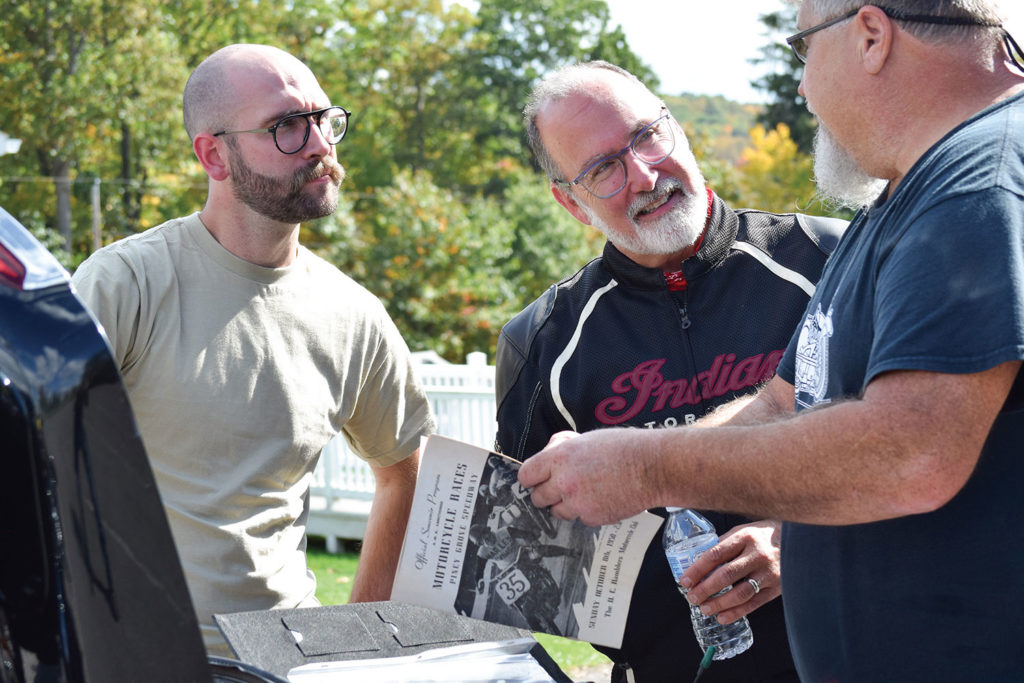
By 1948, Gene had owned his southwestern Pennsylvania Indian agency (what dealerships were called back then) for about 20 years. He had built his reputation as an exceptional rider and racer as well as an expert tuner. If Indian riders wanted the hot setup, Gene was the guy to see. Washie was granddad’s close friend, a fellow racer, and a fixture at the old shop. They shared a passion for three things: Indian motorcycles, racing, and storytelling.
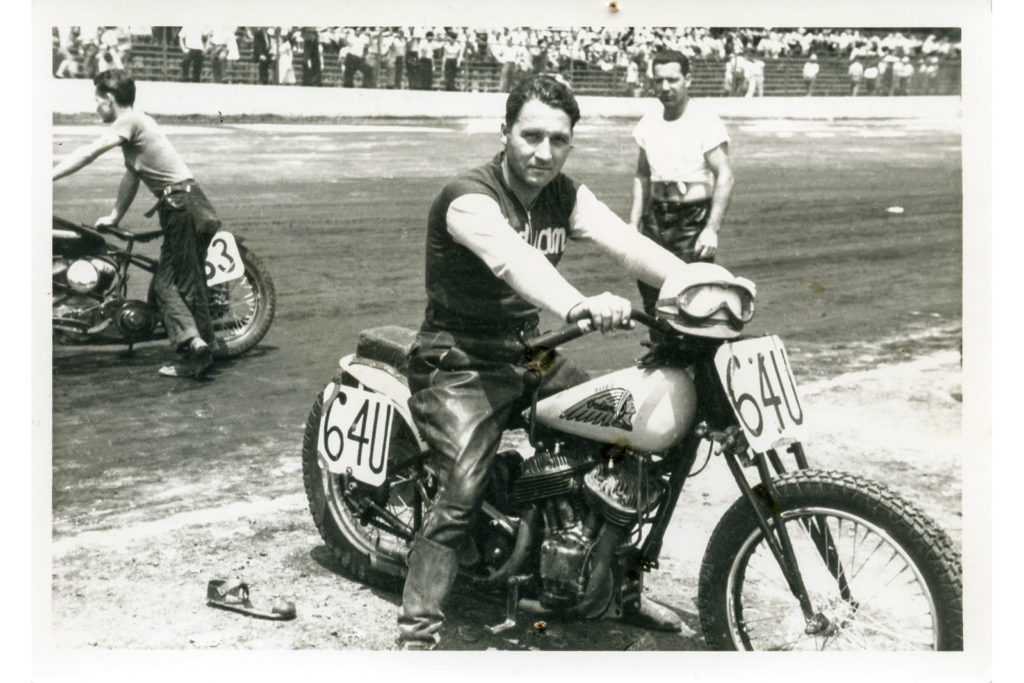
I only knew Washie as an older man who rode his flashy old Indian Chief to my granddad’s shop. But I envisioned him and Gene as the vibrant and courageous young dirt-track racers in the old, dog-eared photographs taken in their racing days. The deep connection I developed with these older men was something I thought only my brother and I knew. Then I heard about Washie’s grandson, Ron.
We may have met at some point at the shop when we were kids, but Ron Washabaugh and I didn’t know each other. About three years ago, we met while attending the American Flat Track races at Williams Grove near Harrisburg. We immediately hit it off and began swapping stories of that magical old motorcycle shop and the deep appreciation and fondness we had for our grandfathers.
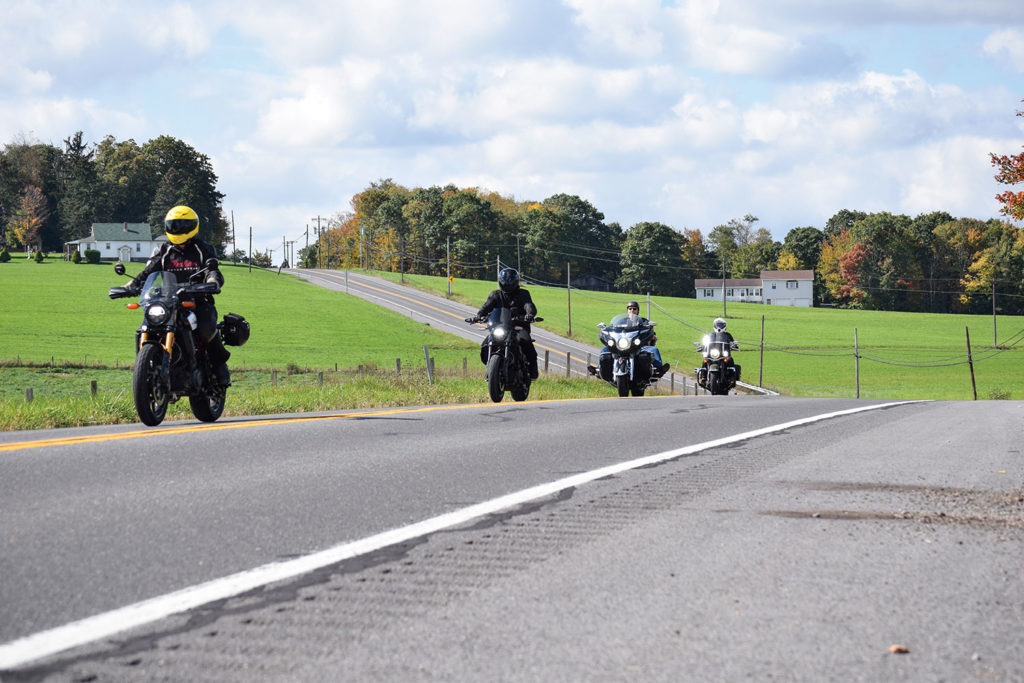
The most powerful memories for Ron and me were the racing tales told so passionately by old Gene and Washie. Through their words they painted vivid pictures of handlebar-to-handlebar racing adventures aboard their Indians on myriad local dirt tracks, as well as more distant venues such as Cumberland, Maryland, and Winchester, Virginia. They would either stuff a bike into the back of a sedan or ride their Indian Scouts to a track, remove the headlights and fenders to race, and then reassemble everything for the ride back home afterward. If they weren’t racing, they were organizing rides to watch others compete, like legendary AMA Hall of Famer “Iron Man” Ed Kretz at the Langhorne, Pennsylvania, track where he dominated the mile oval.
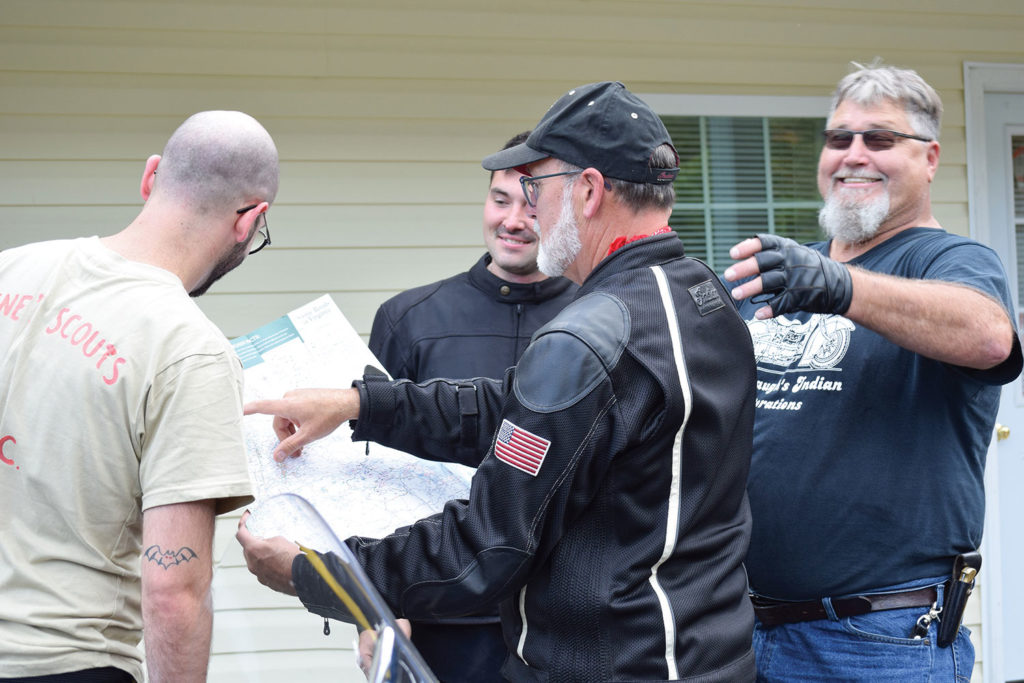
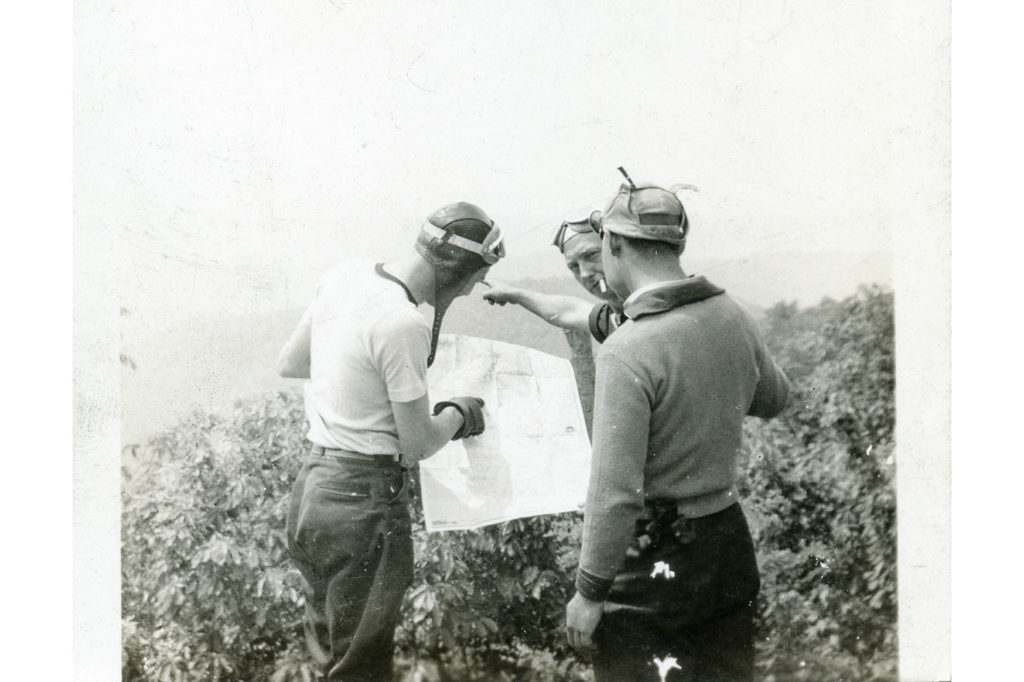
Ron and I decided to retrace Gene and Washie’s path to one of the legendary tracks they rode to back in the late 1940s and early 1950s.
Ron and his son, Steven, and me and my son, Parker, conspired to chase Gene and Washie into the past on a journey to the old Winchester Speedway. As grandsons and great-grandsons, we would emulate the experience the two elders had back in the day. We would ride the National Road (U.S. Route 40) and other two-lane roads, stop where they might have stopped, eat at family-owned diners along the way, and find classic roadside motor lodges where they might have stayed. At every opportunity, we would celebrate their story and, at the same time, get to know each other and forge another generation of bonding around a common passion for motorcycles.
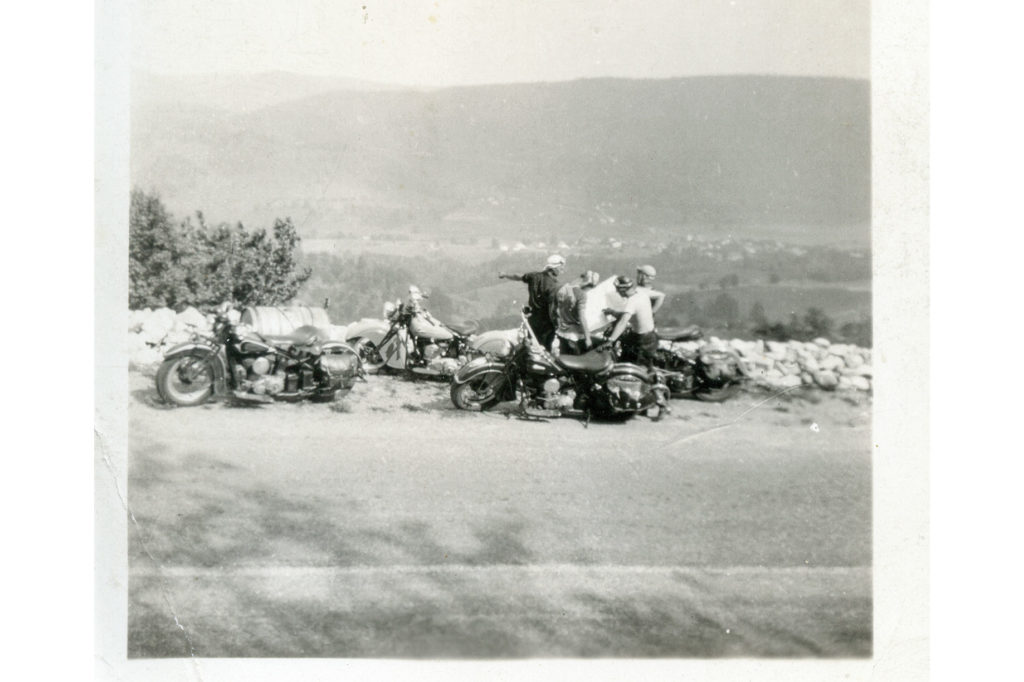
Ron and I both have vintage Indians, but for this excursion Ron was aboard his modern Indian Roadmaster, and I piloted my Indian FTR 1200 S Race Replica. Stephen rode his new FTR 1200 as well, complete with a number plate bearing his great-grandfather’s racing number, #64U. Parker rode a 2018 Harley, just for a little tension in the spirit of that old brand rivalry. (The H-D Heritage 114 is mine, and so is the kid; both are terrific, and any ribbing was in good-spirited fun.)
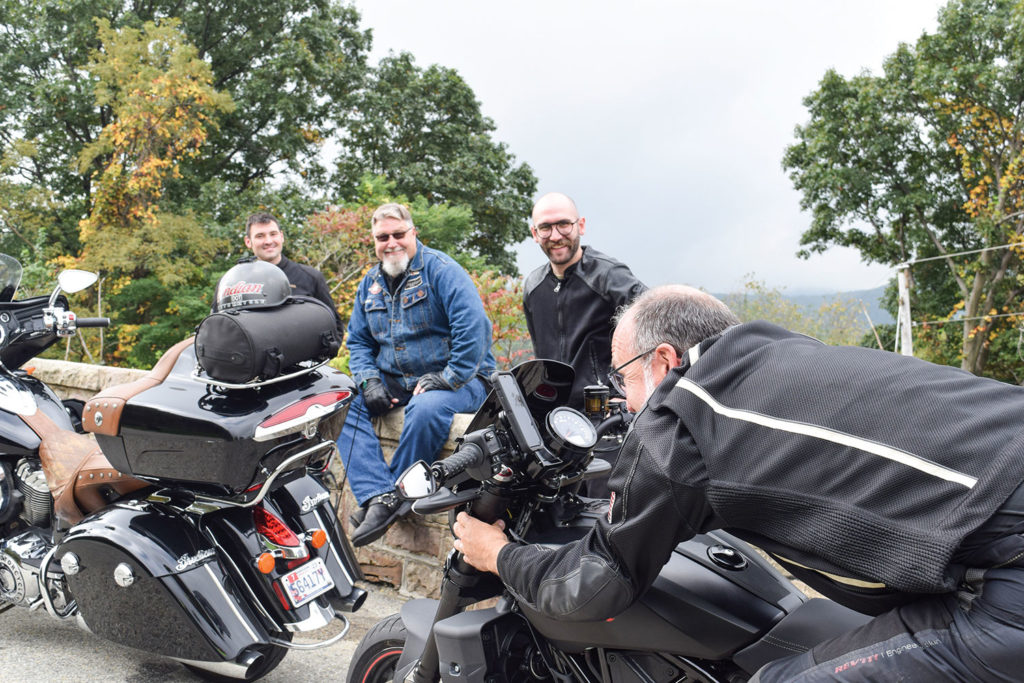
Last October, the Washabaugh boys met my son and me at a diner not far from the old shop. We ordered breakfast and gobbled up the vintage photo albums Ron brought with him. Although the food and conversation were delicious, we needed to get our planned adventure rolling. There would be more time to talk along the road, so we paid the tab and headed to the old Townsend cycle shop. The unexceptional building still stands (barely) just off the National Road, three miles east of Brownsville, Pennsylvania.
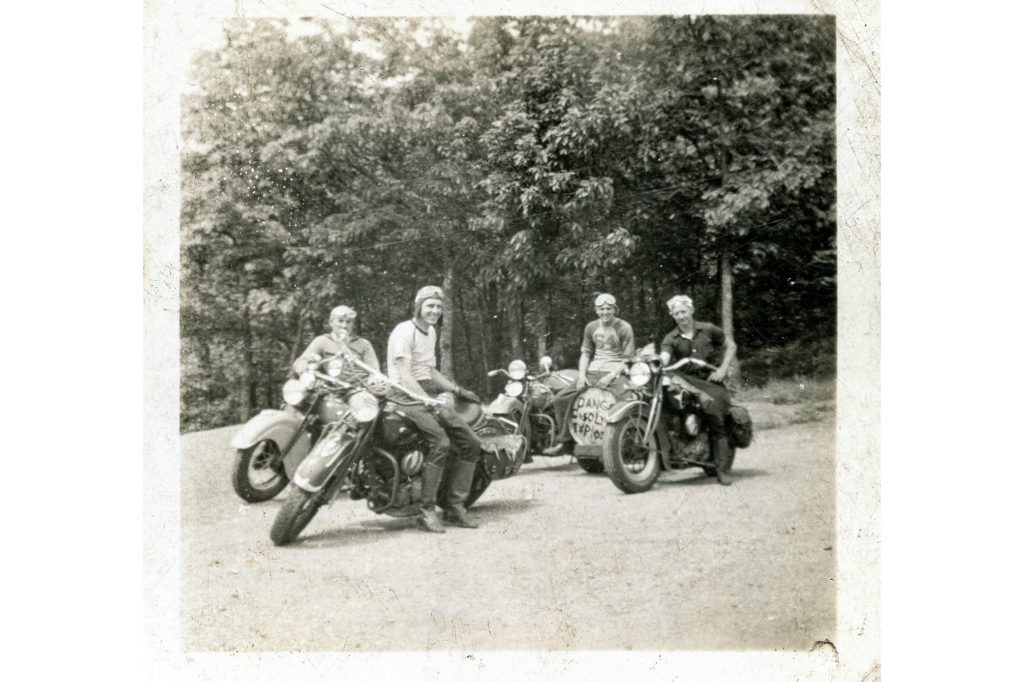
The modest shop was a hub of activity in its day, a gathering place where riders regularly came and went. Some visited to see what new machines and accessories had arrived. Others stopped by for a set of points, a condenser, and maybe a pair of spark plugs on their way through town. Most wheeled in for the conversation and the stories.
It was also the headquarters and ride origination point for members of Gene’s Scouts Motorcycle Club, an AMA-sanctioned club that served as the local riders’ social group and the sponsoring organization for motorcycle competitions. Washie raced as an AMA pro for one year under the Gene’s Scouts M.C. banner. Unfortunately, after just one season, the cost proved to be too steep, and he returned to amateur racing. Some things never change for aspiring racers.
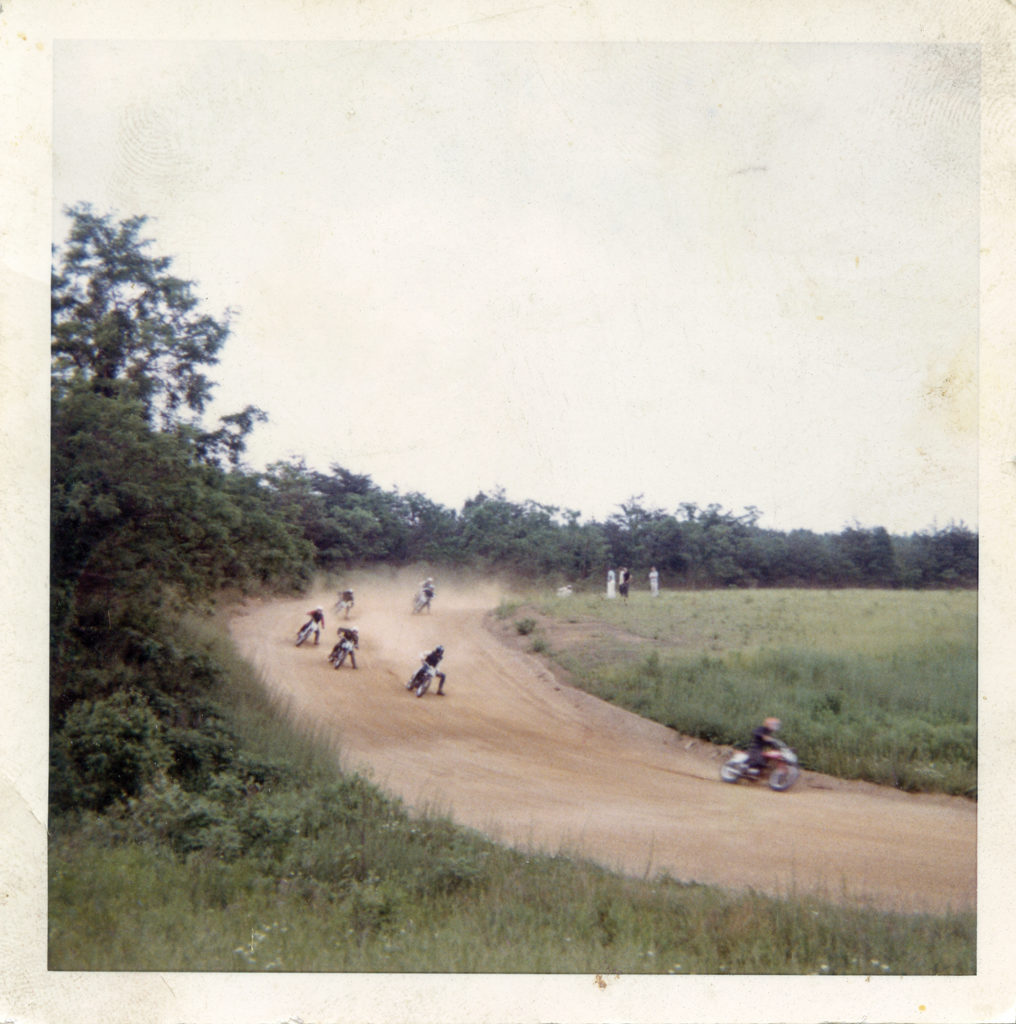
Soon, the engines of our Indians (and Harley) fired to life in front of the old shop, echoing the hundreds of Indians that had gone before from that same spot.
We rolled out of the parking lot and onto Route 40. The first planned stop was just up the road at LaFayette Memorial Park, where we paid our respects at Gene’s and Washie’s family plots. We thanked them for the tremendous influence they had on our lives, saluted their adventures, and invited them to ride along with us inspirit as we retraced the path they took seven decades earlier.
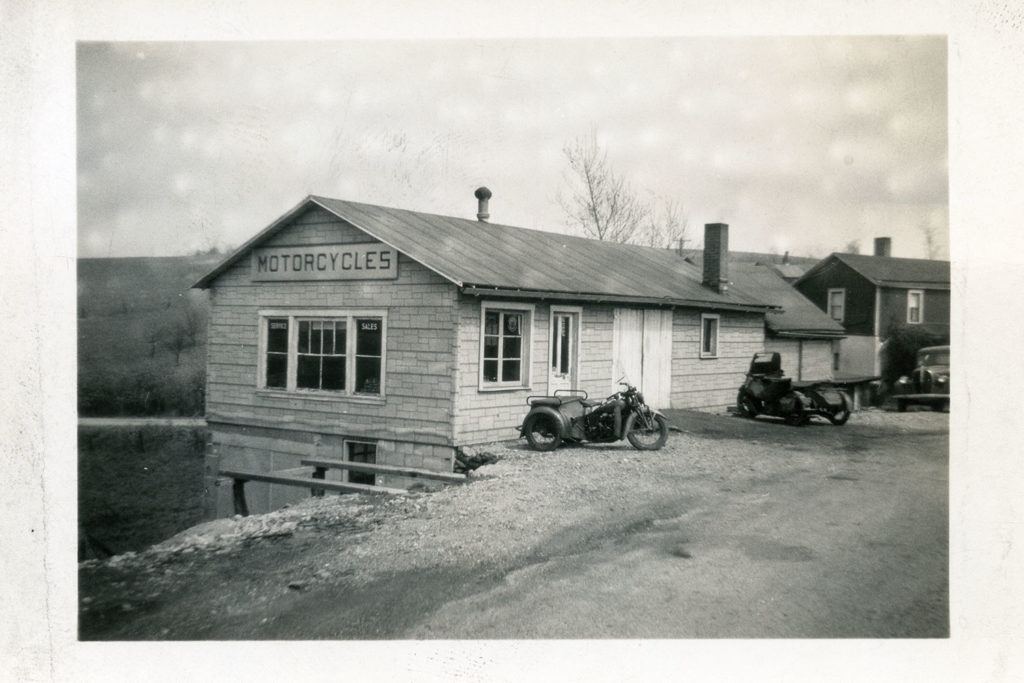
Back on the road and heading east on the National Road, we approached Uniontown. I thought of the story Gene told me about a board-track motordrome speedway that was built there for motorcycle racing in the late teens of the last century. As a boy, he would climb a tall tree outside the grounds just to catch a glimpse of the racers flying by on the large, steeply banked wood-plank track.
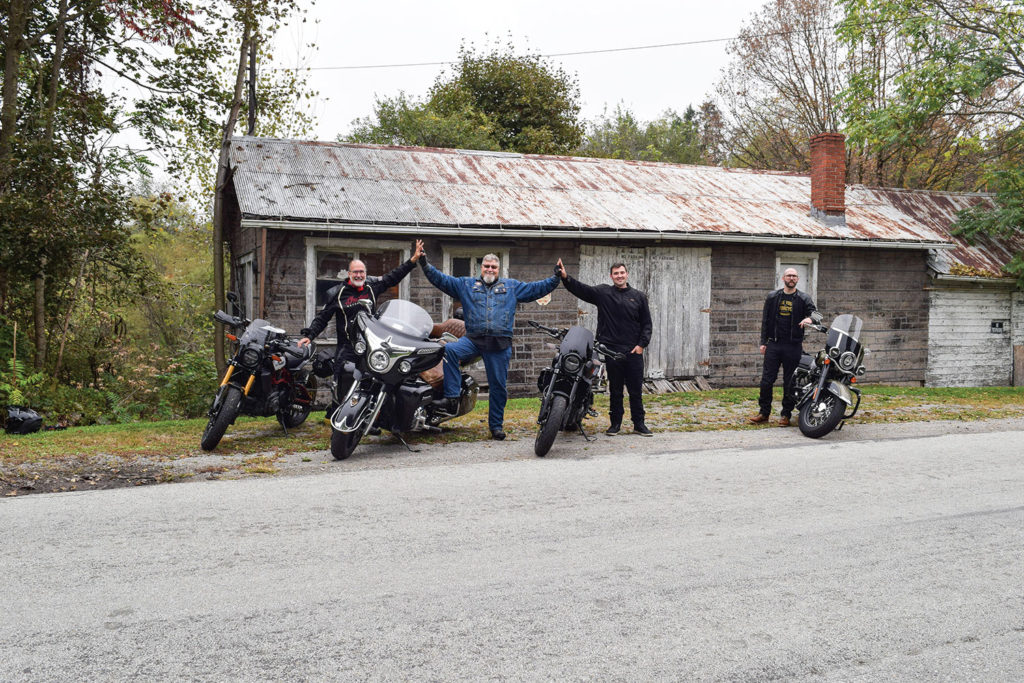
Although the multilane highway now bypasses the towns, we took the old route that Gene and Washie would have followed through downtown Uniontown and Hopwood. We rejoined the highway on the other side where the pavement abruptly angled skyward, ascending Summit Mountain. Back in the day, this was a narrow two-lane ribbon that wound tightly up the steep hill – a rider’s dream. This stretch was the subject of many of the old timers’ stories as they recounted how they raced each other up the steep, twisting curves to the crest of the hill. They heeled their Scouts and Chiefs over so far into these corners that the frames would drag, levering the rear wheels off the ground momentarily. The trick, they said, was to hold the throttle open and let the bike reestablish traction without upsetting the chassis. Easier said than done!
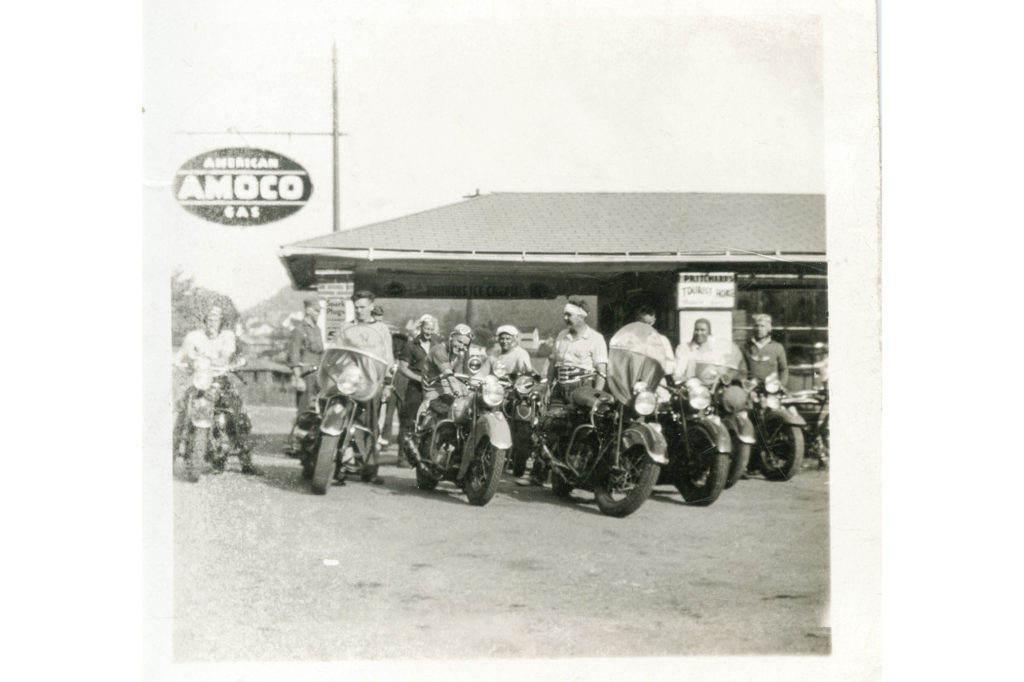
Today, the road is a four-lane divided highway tracing the original circuitous path. Ron, me, and our boys turned up the wick on our machines as we ascended the hill. It was a hoot to drop down a gear and put ourselves, at least mentally, alongside our grandfathers and great-grandfathers on a spirited sprint up the mountain.
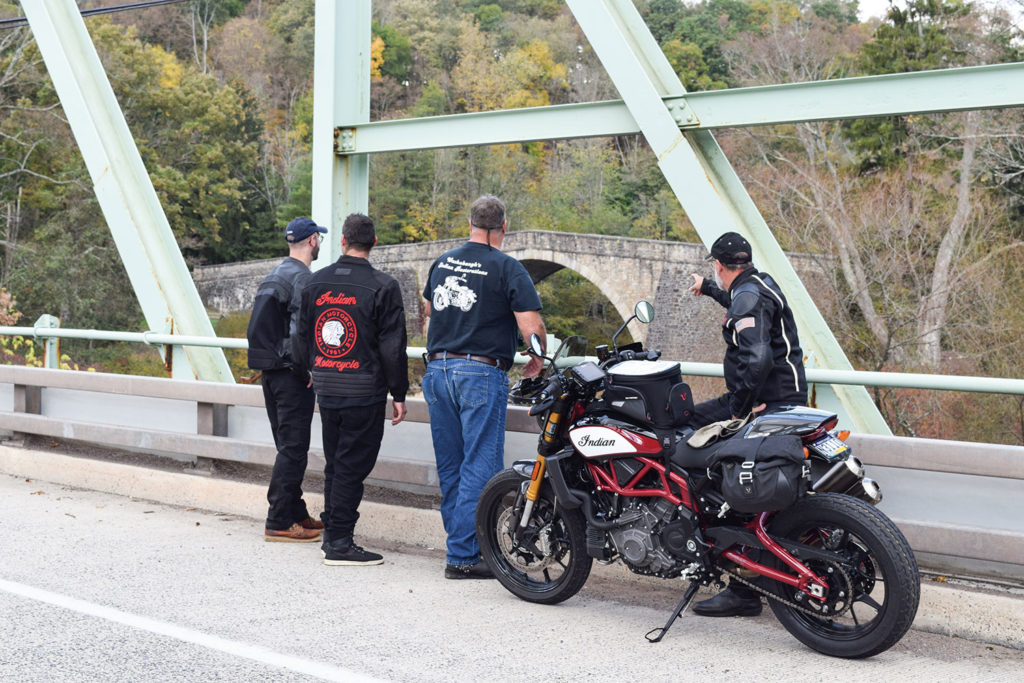
As we approached the summit, I signaled and the four of us wheeled off I-40 into the lookout at the peak of Summit Mountain. This was a spot where Gene, Washie, and the rest of their crowd regrouped countless times over the years. Summit Mountain was not just a road they took on the way to somewhere else, it was their local destination for sport riding. It’s where the guys tested their latest tuning and hop-up tricks. It’s where local Indian and Harley riders found out whose machine had the “soup” to capture the king-of-the-hill title for that week.
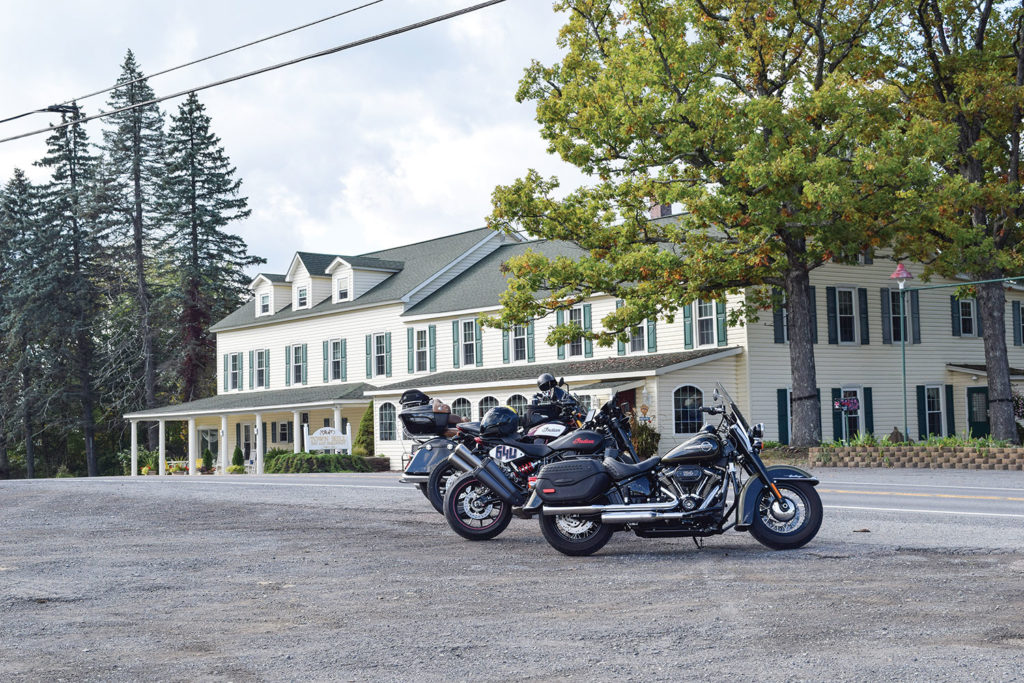
Ron and I used this pull-off to tell our sons stories we’d heard about this road and their great-grandfathers’ motorcycling adventures. We took turns contributing our own recollections, helping each other connect the dots where there had been gaps in our individual knowledge. Parker and Stephen stood by, soaking it all in.
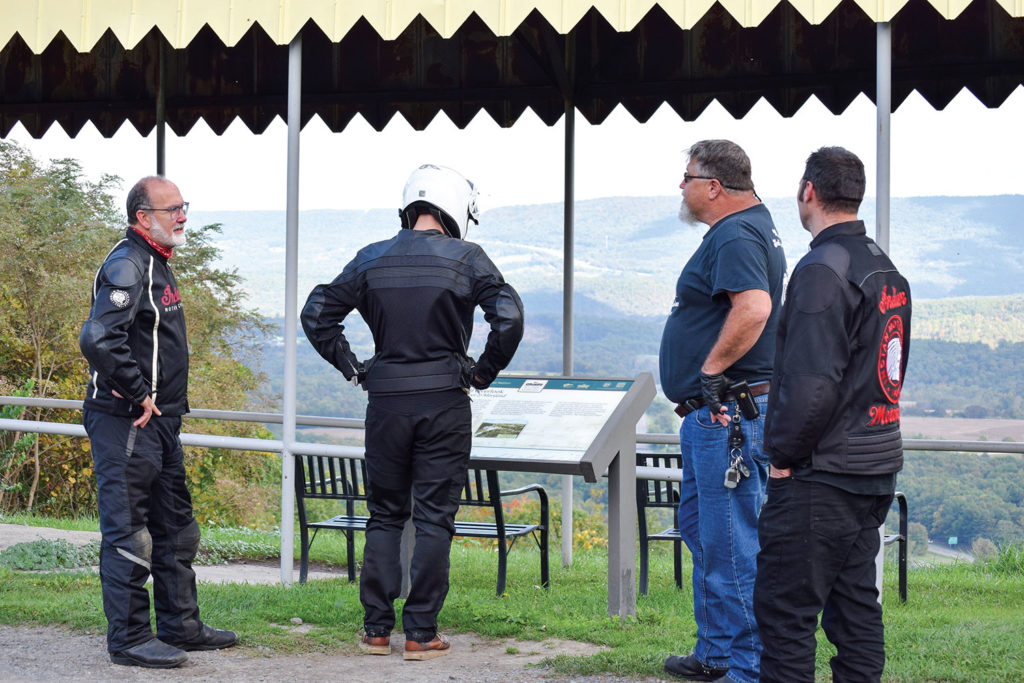
Back on the road, we imagined the roadside stops the men might have made along their way. We proposed where they may have paused to stretch their legs, consult a map, check chain tension, or maybe add a quart of oil. Then we’d stop too. We took advantage of those roadside breaks to look through collections of old racing photos, racing publications, and pictures our grandfathers and their pals had taken along the road to different racing venues.
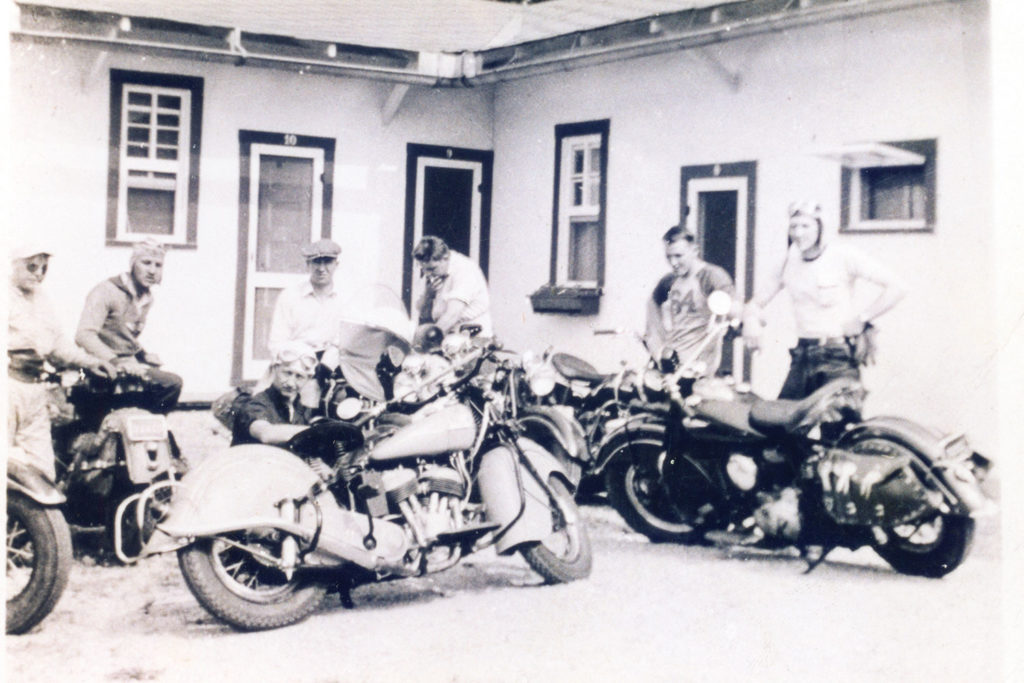
On occasion, we saw a turnoff to Old Route 40, most often a short spur of narrow two-lane that soon rejoined the newer main road. It was fun to ride a few of these old sections to capture the ride experience Gene and Washie had, but it was impractical to take each little detour. Other times we saw sections of Old Route 40 that were no longer accessible, including an area where an old stone arched bridge was once the path of the old National Pike. Gene and Washie probably traveled that same old stone bridge on their way to Winchester. We could only view it from the main road.
We paused at the old Clarysville Motel that looked like it might have been there when our grandfathers rode through. As it turns out, the place has been serving travelers for nearly 100 years. Other than the modern vehicles in the parking lot, it would be hard to distinguish 2021 from 1948 or earlier. Certainly, Gene and Washie rode by here many times, and may have even stayed on occasion when daylight expired.
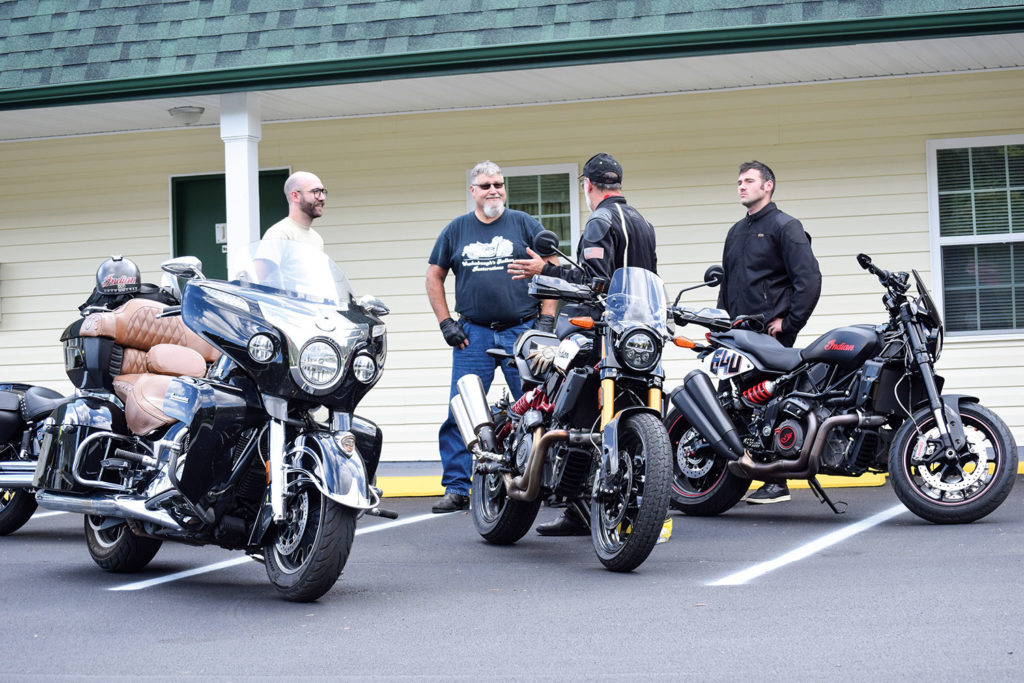
In Maryland, the old highway began to rise, fall, and twist dramatically. This was the kind of road on which the boys surely had the old Indians dancing. They would have been intimately familiar with this fun section of road, knowing what lay ahead and anticipating it well in advance. After navigating a particularly enjoyable stretch, we crested a hill to discover the historic Town Hill Inn and overlook. This was a likely rest stop for Gene and Washie along their ride. It was a natural place to take a breather, check over the bikes, and enjoy the spectacular view across the wide valley below.
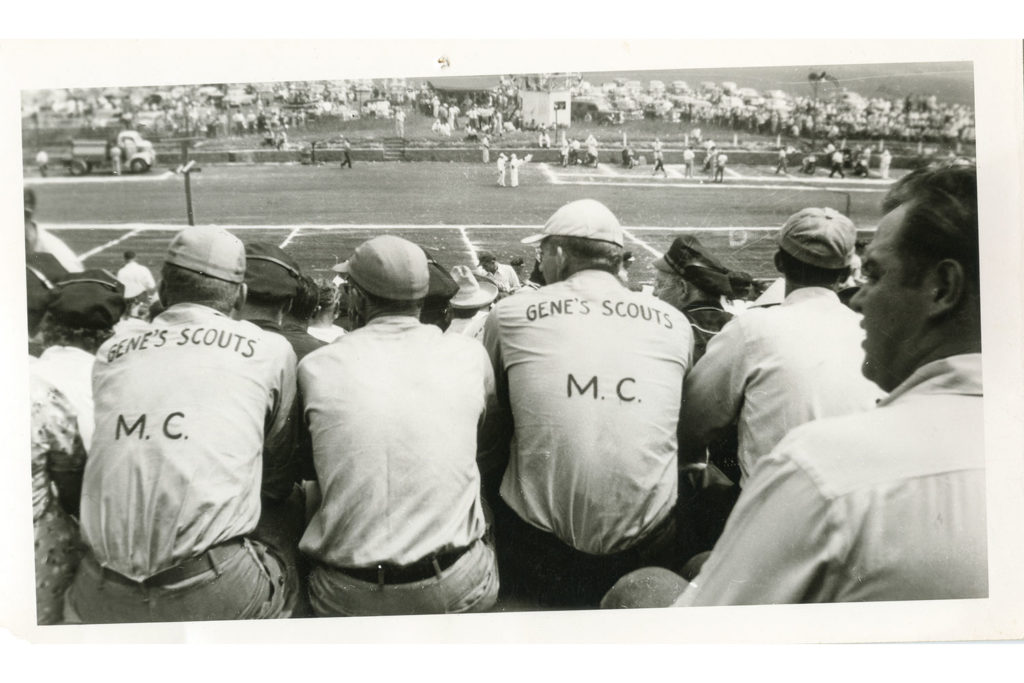
In Hancock, Maryland, we picked up Route 522 south and rode through quaint, historic Berkeley Springs, West Virginia, and on south into Virginia to our destination of Winchester.
Once in downtown Winchester, Ron led us to an iconic spot for a hot dog. Whether Gene and Washie ever stopped at this historic stand for a dog when they were in town, we’ll never know. But just in case, we thought we’d better have one since we were trying to capture the experience.
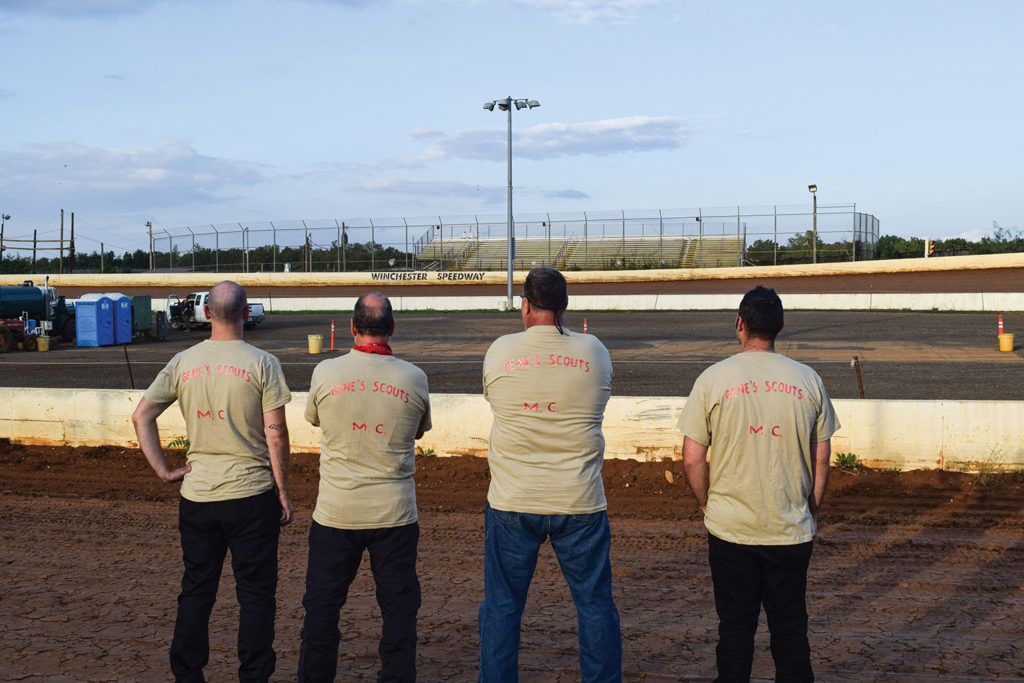
Since the Winchester Speedway is sometimes referred to as the old airport speedway, we meandered through the town following directional signs for the airport. After working our way along narrow roads that wound around the airport property, we came to the end of the road and were unexpectedly at the back side of the racetrack. No big sign. No grand entrance. As a lot of these rural speedways were, it was simply a venue where people gathered. The raceway was probably not much different than it was when Gene and Washie were last here together, except now the old wooden grandstands are gone, replaced with concrete and metal.
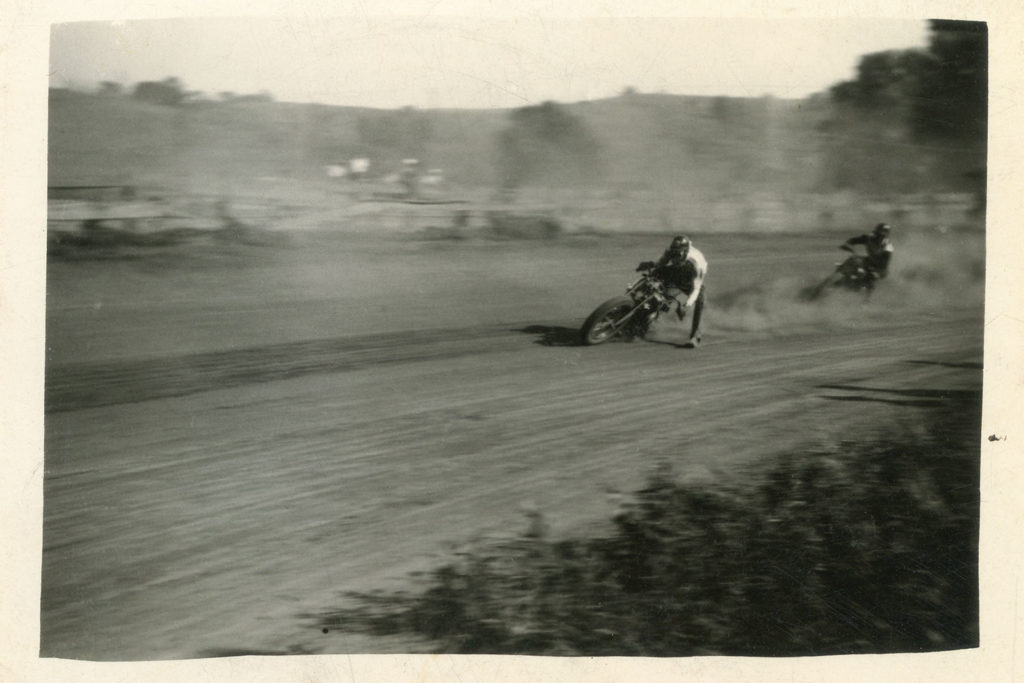
The beauty of these local facilities is how approachable the track personnel can be. We arrived midweek in the middle of the day and told our story. Hoping to have a picture taken outside the track at the speedway sign, our plan was thwarted when we realized there was no such sign and no suitable backdrop. Fortunately, the track folks invited us to bring the bikes onto the track and position them in front of the wall on the back straight where “Winchester Speedway” was painted in bold lettering. It was perfect. Ron couldn’t resist the temptation to ride around the dirt track just to run tires on the same clay that his grandfather once tore up on the #64U Indian Sport Scout.
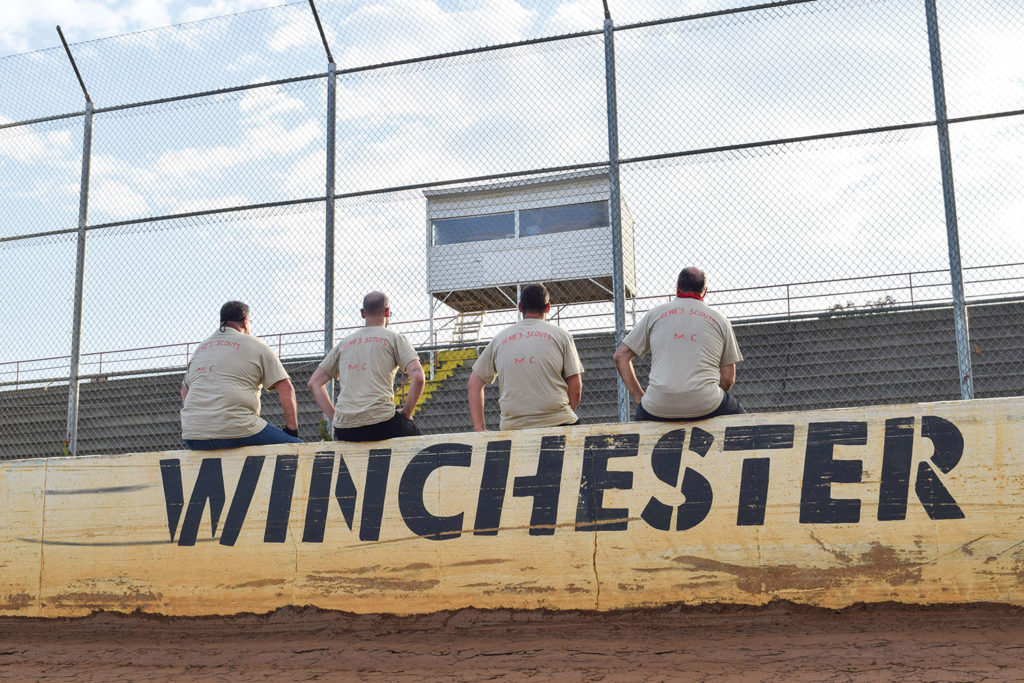
We were all having a great time and didn’t want the adventure to end, but the autumn sun was already sinking low in the sky. With our mission completed and an abundance of pictures taken to commemorate our expedition, it was time to say our goodbyes. Ron and Stephen had about a two-hour ride east to get back home. Parker and I needed a bit longer for our westward trek on modern interstate highways back toward Pittsburgh.
On the way home through the darkness, I replayed the ride over again. In my mind, I overlayed images of Gene and Washie from 70 years ago on today’s images of Ron, Stephen, Parker, and me riding the same roads to Winchester. It felt good to ride with other descendants. It felt even better to be together, chasing Gene and Washie.
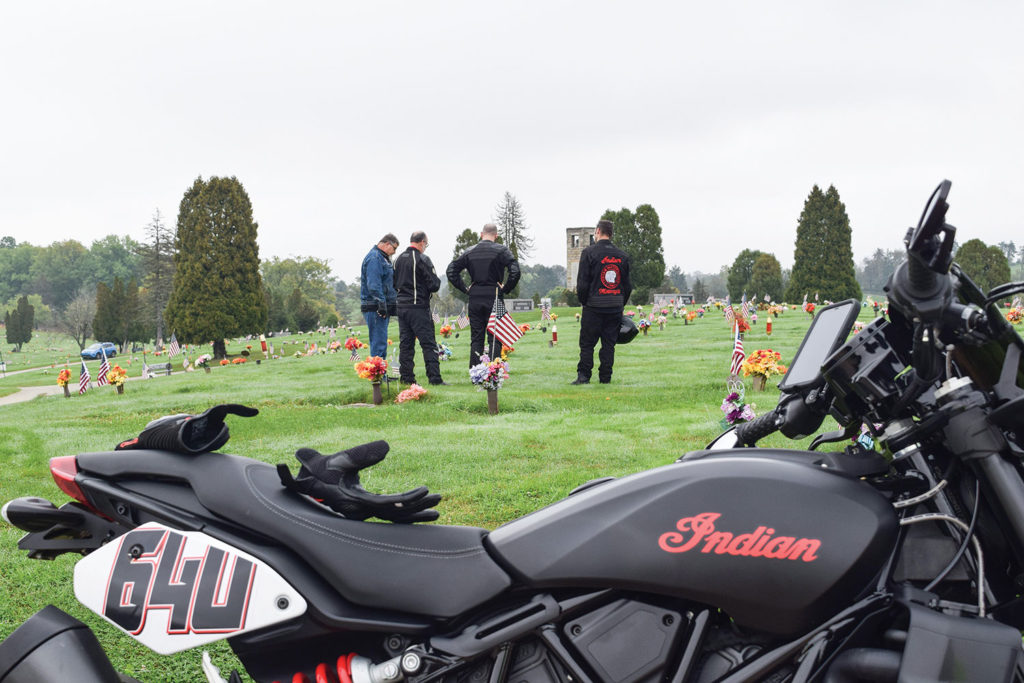
POSTSCRIPT
As much as the Indian boys would love to hear that the Harley broke down so often that we were forced to abandon our plans (or abandon Parker), the Heritage 114 did just fine. While it’s fun for us to see the old Harley and Indian wars heating up once again in this modern era (we can hear Gene and Washie piping in from the great beyond), the real benefit of that rivalry has been the development of better motorcycles from both brands. A little competition is a good thing, though Gene and Washie would still give Indian a slight edge. After all, it’s in their blood.




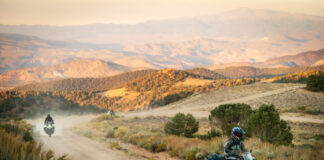
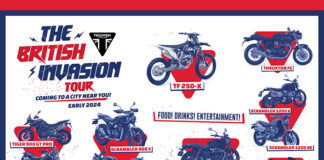
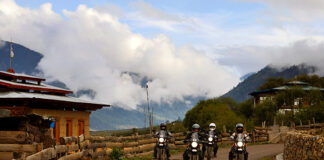

Thanks for sharing that great family tale. Much appreciated and well done gentlemen!
#IronIndianRiders
Great story, well told Eric. I was late for work today – couldn’t stop reading.
My Grandfather raced Indians in Shenandoah in the 1950s. And I know he rode with a club that spent time in PA. His name was Harry Martin. Wonder if they knew each other…